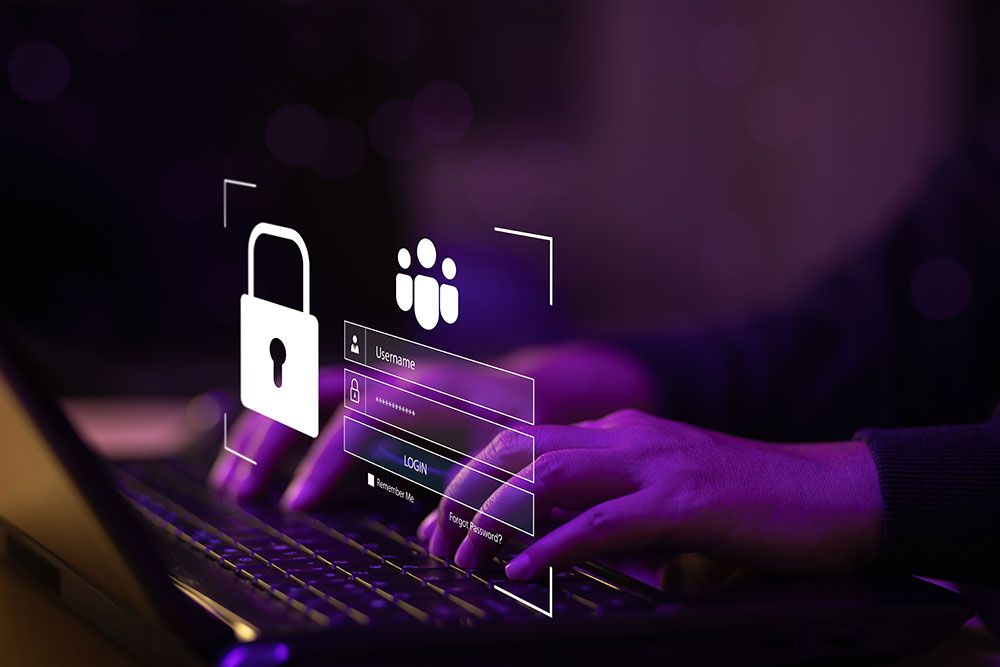Cyberattacks have become very common these days owing to AI and rapid digitalization. That’s why one must try to keep their online accounts secure. An online account is any personal account accessible online, such as email, social media, and bank accounts. The more vulnerable an account is, the easier it becomes for hackers to steal information from it. There are several best practices to secure online accounts and improve digital security.
Set strong passwords
A password is the first line of defense for any online account, securing it from unauthorized users. So, to protect online accounts from hackers, it is crucial to set a strong password. This may seem like an obvious tip, but many do not always follow it. Even if they do, they set extremely simple passwords, such as “12345678” or just the word “password.” While this may make the password easier to remember, it also makes the account extremely vulnerable and easy for hackers to access.
To make accounts more secure, one needs to follow strong password tips. For starters, a password should be at least 8 to 12 characters long and have a combination of numbers, lowercase letters, uppercase letters, and a special character. Along with that, one must avoid using words or phrases that are obviously related to them, such as their last name, or even their birth date. Further, it is important to avoid setting the same password for multiple accounts.
Avoid using public Wi-Fi networks
Airports, restaurants, cafes, and other public places usually have open Wi-Fi networks, which are free for customers. To save on data, people naturally prefer connecting to these networks. While this may seem harmless, it makes one highly vulnerable to cyberattacks. That’s because if a cybercriminal or hacker is also connected to the same public Wi-Fi, they can easily intercept one’s traffic and steal their data. So, it is always better to avoid using public Wi-Fi networks.
If someone has no option but to use public Wi-Fi, they must strictly avoid entering their personal data or login credentials on any website. One can also consider using a VPN or virtual private network when using public Wi-Fi. A VPN secures its user’s data and internet traffic from hackers by encrypting it. Simply put, it makes the data unreadable or undecipherable for hackers.
Use two-factor authentication
Owing to the improving penetration skills of hackers and the consequent rise in cyberattacks, passwords may not always be enough to protect online accounts. That’s why one must add another line of defense to their accounts. This additional line of defense is called 2FA or two-factor authentication.
As the name suggests, two-factor authentication requires users to provide one more form of identification or authentication after entering the password. Usually, this involves entering a code sent on one’s phone or email. One of the key benefits of two-factor authentication is that even if a cybercriminal gets access to a correct password, without the code or the second authentication method, they still won’t be able to access the account.
Don’t download apps from unknown sources
Besides Apple, almost all other devices have operating systems that allow app downloads from third-party sources. Still, one must try to avoid such downloads. If doing that is unavoidable, one must only stick to trusted and renowned websites for downloading apps. Official brand websites, for instance, could be considered reliable.
If one comes across unknown websites or sources, one must avoid downloading apps from the links they provide. This is because apps from unknown sources could carry malware or viruses that could compromise the security and functionality of one’s device, data, and accounts.
Don’t click on suspicious links
A common way in which cyber attackers and hackers target people is via phishing emails and text messages. If a person receives an email or an SMS from an unknown source asking them to click on a link, it could be a phishing scam. The links may request permissions for suspicious downloads or lead to fake websites that look like real bank or social media login pages. Cybercriminals make these sites to deceive people and trick them into entering their real credentials, which would then be misused. To avoid that from happening and prevent phishing attacks, it is crucial to avoid clicking on suspicious links.
Update passwords regularly
Another tip to improve online account security and avoid cyber attacks on accounts is to update all passwords from time to time. Updating passwords will help one ensure all their accounts are secure. If someone has trouble making new, complex passwords often and remembering each one, they can consider using password manager tools. These tools help create complex passwords and even store them in a secure digital vault. Since this tool will safely store all passwords, one will only need to remember a single password—the one that provides access to the password manager tool.
